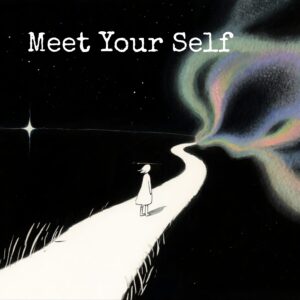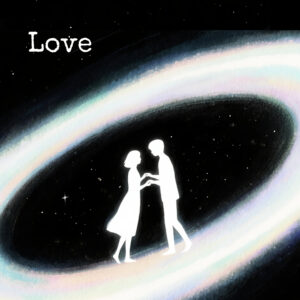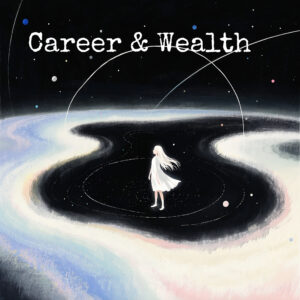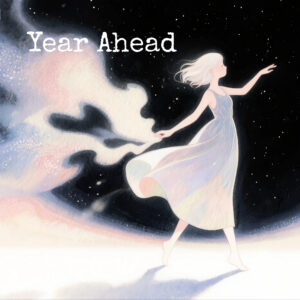El hombre que trajo las estrellas a la era moderna
Cuando el siglo XX abrió los ojos a la psicología, la teosofía y la ciencia espiritual, un hombre se encontraba en la encrucijada entre el antiguo arte astrológico y su renacimiento moderno: Alan Leo (1860–1917 d.C.).
A menudo llamado el “padre de la astrología moderna”, Leo transformó una práctica de adivinación en decadencia en una sistema psicológico y espiritual—un lenguaje de carácter, conciencia y karma.
Su síntesis de astrología, Teosofía, y desarrollo personal redefinió el propósito de la carta natal. Por primera vez en siglos, la astrología ya no se trataba de predicción, sino de comprender la evolución del alma.
Vida temprana y despertar
Nacido William Frederick Allan En Westminster, Londres, adoptó el seudónimo Alan Leo cuando comenzó a publicar obras astrológicas.
Criado en circunstancias modestas, Leo trabajó como oficinista y contable antes de descubrir Teosofía, el movimiento esotérico fundado por Helena Blavatsky.
La visión teosófica de la reencarnación, el karma y el orden cósmico influyó profundamente en su comprensión de la astrología.
Para Leo, el zodíaco no era una rueda del destino sino una mapa del viaje del alma a través de las vidasCada signo y planeta reflejaba lecciones elegidas por el alma para su crecimiento y realización.
El Cosmos Teosófico
Bajo la influencia de la Teosofía, Leo reformuló la astrología como una psicología espiritual.
Él creía que cada gráfico expresaba tres niveles del ser:
Físico — el cuerpo y las circunstancias de la encarnación.
Emocional-Mental — temperamento y patrones de comportamiento.
Espiritual — el ser superior evolucionando hacia el propósito divino.
Este enfoque colocó libre albedrío y autoconciencia en el centro de la astrología.
“El sabio gobierna sus estrellas”, escribió León, “el necio las obedece”.
Él enseñó que los planetas no causa eventos pero correspondía a los patrones internos de la conciencia que atraen la experiencia.
Este cambio —del destino al crecimiento, de los acontecimientos externos al significado interno— fue revolucionario.
La astrología como análisis de la personalidad
El libro más importante de Leo, La clave de tu propia Natividad (1910), presentó la astrología como la ciencia de carácter y temperamento.
Mientras que los astrólogos anteriores se centraban en predecir fortunas, matrimonios o desastres, Leo hizo hincapié en autoconocimiento y desarrollo moral.
Él introdujo el concepto de “lectura de personajes”, una forma temprana de lo que se convertiría en astrología psicológica.
Esto hizo que la astrología fuera accesible a un público nuevo y educado que buscaba conocimiento en lugar de superstición.
Él escribió:
“El carácter es el destino; cambia tu carácter y cambiarás tu destino.”
Al vincular la astrología con la psicología y la ética, Leo reposicionó al astrólogo como un consejero espiritual, no es una adivina.
La Logia Astrológica y el Renacimiento Global
En 1895, Leo fundó la Logia Astrológica de la Sociedad Teosófica en Londres, que se convirtió en un centro vital para el estudio y la reforma astrológica.
Allí reunió a pensadores afines, entre ellos Bessie Leo, Charles EO Carter, y Sepharial—modernizar la astrología en armonía con la Teosofía y las ideas psicológicas emergentes.
Su diario Astrología moderna, lanzada en 1895, circuló globalmente e inspiró a una nueva generación de astrólogos.
Bajo la influencia de Leo, la astrología recuperó su dignidad intelectual y su propósito moral, resurgiendo como una ciencia de la evolución del alma más que superstición.
Pruebas y transformación
La obra de Leo no estuvo exenta de polémica. En 1914, fue procesado en Inglaterra bajo la ley. Actos de brujería y adivinación, acusado de hacer predicciones deterministas.
Se defendió argumentando que la astrología era una disciplina científica y espiritual, no es un método de adivinación.
Su condena (posteriormente revocada) marcó un punto de inflexión. A partir de ese momento, renunció por completo a la astrología predictiva, declarando que «toda la astrología debe estar dirigida hacia el autoconocimiento y el desarrollo del carácter».
Esta lucha legal ayudó a establecer la base ética de astrología psicológica moderna—centrado en la orientación, no en la profecía.
Legado: De la teosofía a Jung
La reforma de Alan Leo puso en marcha el movimiento moderno que más tarde desarrollarían astrólogos como Dane Rudhyar, Marc Edmund Jones, y Liz Greene.
Su énfasis en desarrollo interior, karma y libre albedrío anticipado Carl Jung Exploración de arquetipos y sincronicidad, que vincula la astrología con el campo emergente de la psicología profunda.
A través de Leo, la astrología entró en la era moderna como herramienta para integración espiritual—un espejo para la autoconciencia más que una predicción del destino.
El visionario moderno
Alan Leo transformó el propósito de la astrología.
Él enseñó que las estrellas no dictan la vida, sino que reflejar la conciencia en desarrollo del alma.
En sus palabras, el horóscopo es “un mapa de posibilidades”, un diagrama divino del yo que toma conciencia de sí mismo.
En esa visión, el astrólogo no es un profeta sino un guía, que ayuda a otros a ver sus cielos interiores con la misma claridad con que Galileo vio los exteriores.



